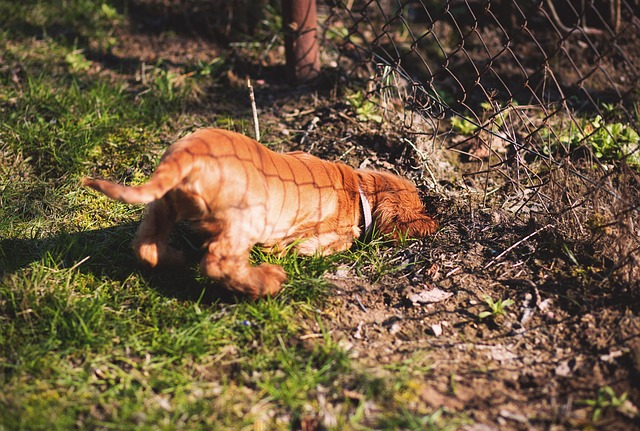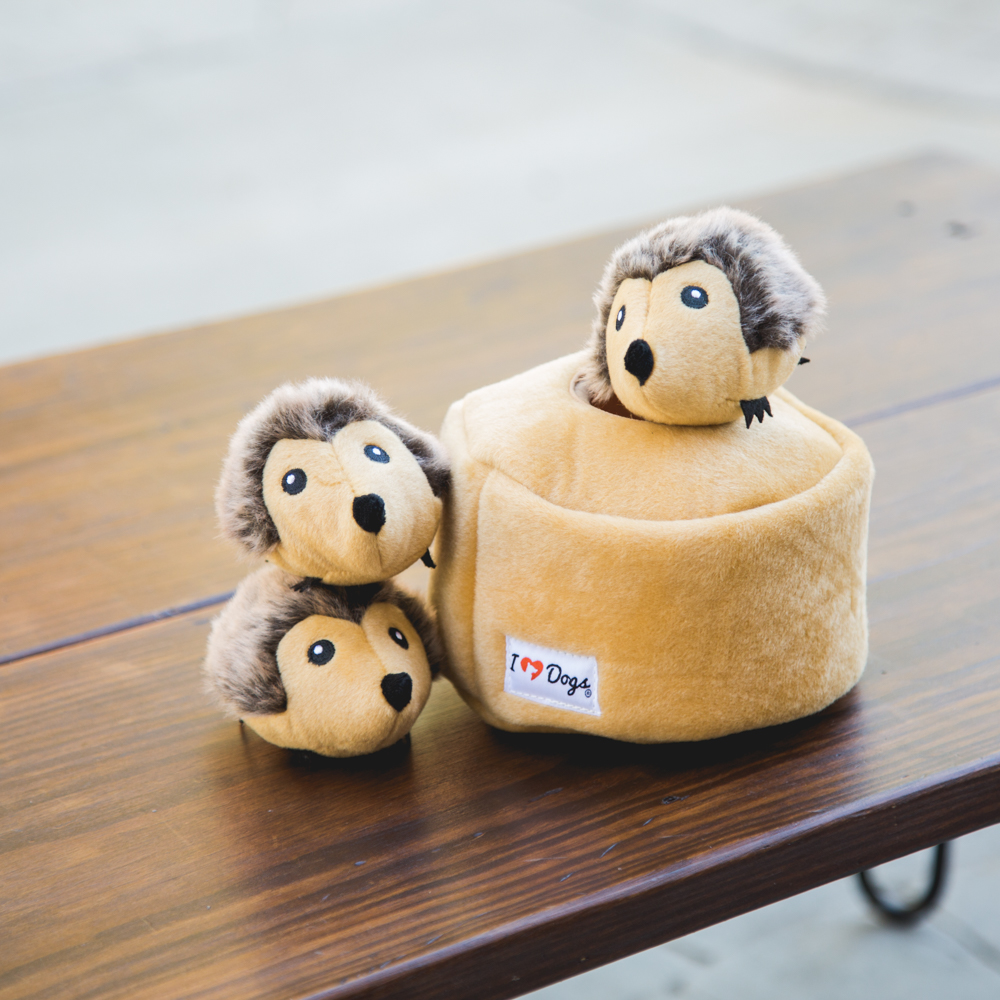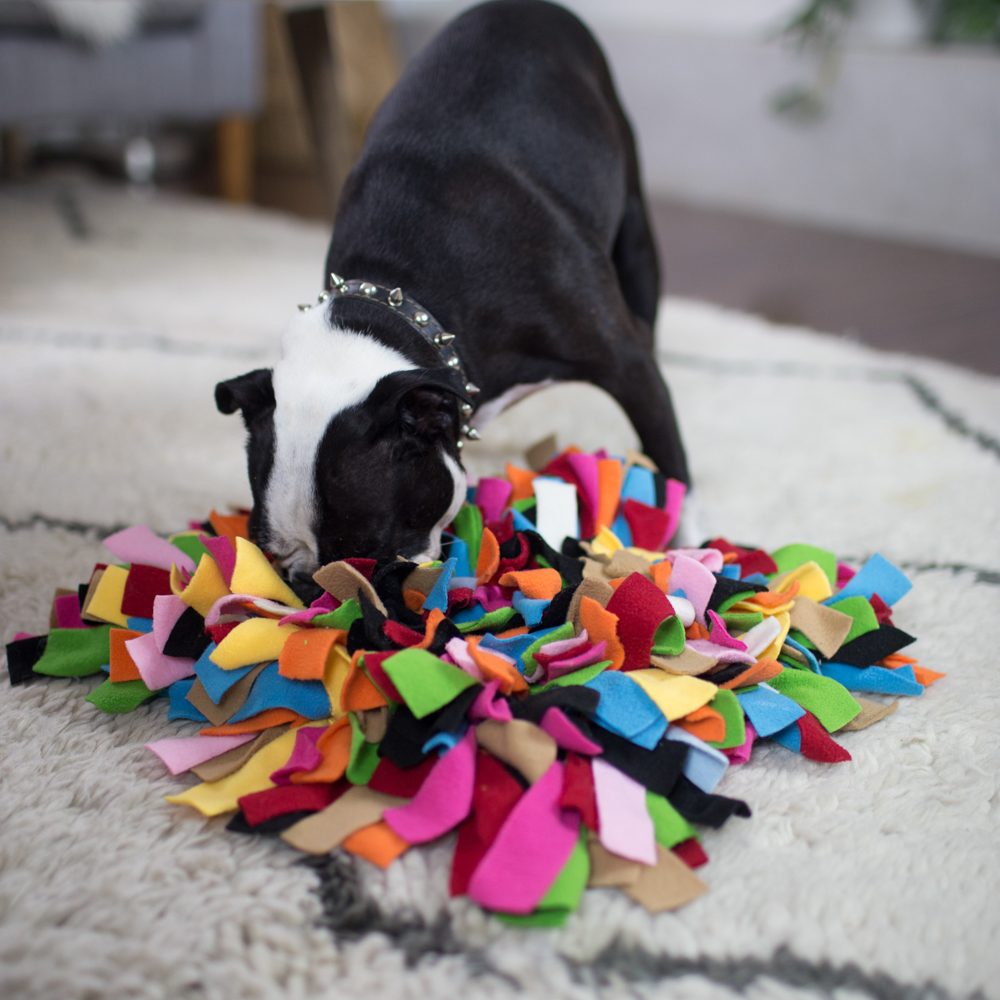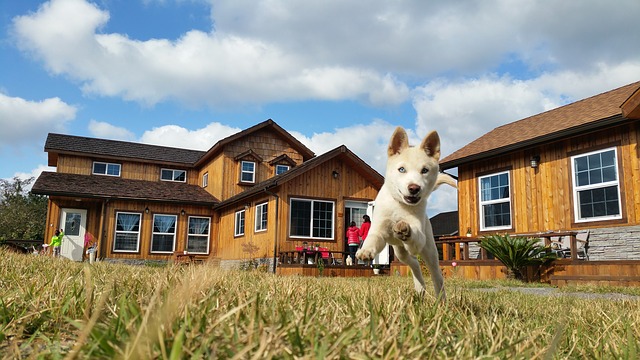The mud. The mess. The holes. No, there was not a major battle in your backyard. Just the battle to stop your dog from digging!
Digging can cause a lot of headaches and make it impossible to enjoy your outdoor space. Lawnmowers break, grass dies. And the mud. Mud everywhere. There are a few reasons your dog might be trying to turn your yard inside out. And believe it or not, few of those reasons are his fault! To stop your dog from digging you’ll have to get down to the root of the behavior.

Boredom
A bored dog will not stay bored if he can help it. He’ll find ways to entertain himself, and you’ll see evidence of his self-made fun dug all over your yard, and dog who isn’t getting enough exercise may need to find another way to burn off all the energy he has. (Zoomies, anyone?) High-energy breeds like Border Collies and Australian Shepherds will need more exercise than lapdogs like Pugs. If it’s an energy issue, you’ll need to exercise him more to stop your dog from digging.
Some breeds, like terriers, were just bred to dig, and it may be that he enjoys the feel of dirt between his toes. To stop a dog from digging for entertainment or exercise, you’ll have to provide alternatives.

How To Stop Your Dog From Digging When He’s Bored
1. Don’t leave him outside for long periods of time.
First and foremost, your dog should not be left in your yard all day. This is how you get dogs that keep the neighbors up, dig up yards, escape, and are at risk for choking or hurting themselves while unsupervised. Dogs are pack animals, and they need to socialize and be close to their family. A happy, well trained dog doesn’t destroy furniture or pee on carpet. If you put him out while you’re at work, there are other options, like crate training, that will keep him indoors, out of trouble, and your yard intact.
2. Toys
Toys will provide some distraction for your dog when the dirt is calling his name. Some toys, like this Hedgehog Hide & Hunt Plush toy, are even made to cater to your dog’s desire to dig! Make sure you’re getting toys appropriate for your dog’s size, and replacing your dog’s toys as they become worn out, since old toys can become a choking hazard.

3. A Designated Dig Pit
If digging really makes your dog happy, consider getting him a sandbox or dig pit of his own. It doesn’t have to be anything fancy – a space of his own where he can dig all he wants will thrill you both. You can train him to use this area instead of your yard by burying toys for him to find and gently stopping him when he tries to dig any where else. Reward him for digging in his new area, and he’ll quickly learn that this spot is his to dig to his heart’s content.
4. Play
Fetch can be done from a sitting position whether you’re inside or outside. Your dog will know if he doesn’t have your undivided attention, so maybe leave the TV off. When the weather is bad, or you prefer to stay home, the Sniff Diggy snuffle mat can exercise your dog’s body and mind without having to leave the living room!

5. Think
Puzzle toys can be great entertainment for your smart dog. Some toys, like this one from Amazon, have no removable parts, so they’re a better choice for keeping your dog busy when he’s unsupervised. Training a new command will not only wear him out, but will stregthen your bond and give your dog a new trick to show off! Thinking may not be a five-mile jog, but tiring out his mind can help stop your dog from digging.
6. Work
Working breeds enjoy having jobs to do, like nosework or herding toys, which can keep their paws out of the dirt. Dogs – especially athletic breeds – enjoy dog sports like agility, which you can do at home with even a small course!

For Comfort, Or For Escape
Digging is one sign of an anxious dog. Some dogs may be trying to dig their way out of their yard. You may notice that his holes tend to be against the fence. Other dogs may be trying to dig themselves a safe space. Before our dogs lived on our couches, they lived in dens, and often, dens were no more than a cozy hole in the ground.
To fix his behavior, make sure that you’re providing adequate shelter for him while he’s outdoors. Having a space of his own outside can help him soothe himself if he’s feeling anxious. Dogs should always have access to a clean, comfortable place in the shade.
7. Stop Your Dog From Digging By Making Sure He Has A Safe Space

First, make sure your dog stays safely in your yard by burying your fence a foot or two below ground. Then, make sure he has a safe place to go inside that fence. Whether you buy your dog’s shelter or build it yourself, it should have a few things to make it welcoming for your dog.
– Walls
Don’t settle for just an awning. If your dog feels scared or threatened while outside, he’s more likely to run to his shelter than out of your yard if it is enclosed. The walls will also protect from chilly winds and rain. Reminder: this is not your dog’s living area, just a safe space outdoors.
– Keep It Clean
Pests like ticks, fleas, and other bugs like to hide out in bedding or dog houses. Cleaning it regularly will keep it dirt and pest-free and make it more appealing to your pup.
– Make It A Happy Place
Your dog should always have access to his safe area, and it should never be a place where he is confined. Especially as a punishment for misbehavior. You can help him associate it with good feelings by putting treats and favorite toys inside.
Positive reinforcement will always work better than negative, and it will preserve the bond and friendship you have with your dog. Good lawn care starts with patience and love for your pup!
 Toledo, United States.
Toledo, United States.